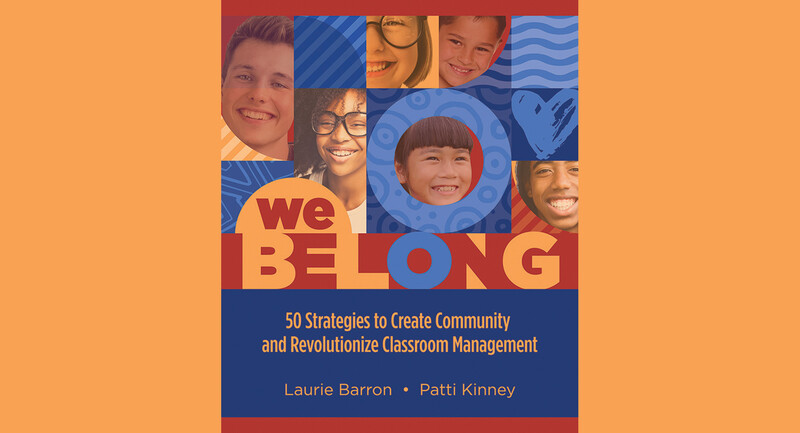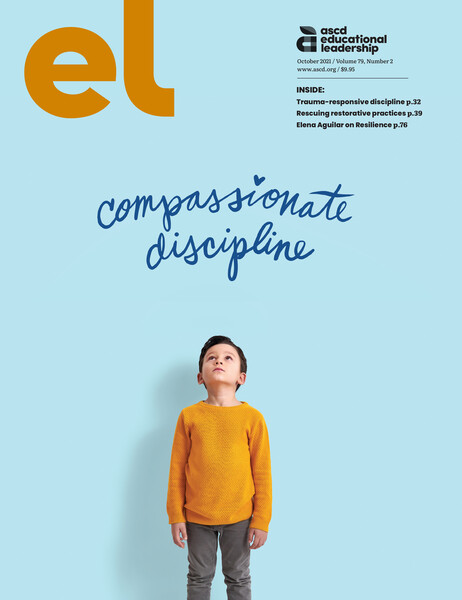We Belong: 50 Strategies to Create Community and Revolutionize Classroom Management, by Laurie Barron and Patti Kinney (ASCD, 2021).
Most educators have been there: You want to start the morning lesson and dig into some substantive material, but students clearly are not ready—some are gossiping; another has out the pipe cleaners intended for a later social-emotional learning activity; and in the corner, another student sulks, still bothered by something that happened at drop off. What you do at this juncture is key. Pushing your agenda when students aren't in the right headspace to learn can lead to power struggles that might weaken your classroom management—and your authority. But if you'd done more community building with students early on, this situation could be easier.
Classroom management is a key element to teaching, and many strategies over the years have claimed to be the best. But there's something different—novel, even—to the strategies compiled by Laurie Barron and Patti Kinney in We Belong. Instead of showing how to redirect misbehavior, the book recommends preparing the ground for better student focus and behavior from your class's earliest days. It describes research that favors giving students "a profusion of concrete belonging-focused experiences and skills" before any instruction takes place. Barron and Kinney recommend things like opening lines of communication with families early on, strengthening bonds with students by getting to know them, and establishing consistency (such as by posting a daily agenda).
The idea isn't to simply manage the classroom, but to implement "belonging-centered" classroom management that creates comradery and community, giving students greater social-emotional competence and an environment where they feel wanted and valued. This makes it easier for teachers to gather kids' attention and redirect off-task behavior when needed.
We Belong challenges educators to explore their current practices and try new ones through brainstorming guides and reflection questions. It also includes templates for student goal setting, behavior agreements, group collaboration, and more. As the authors state, belief in the importance of belonging isn't enough: "You must be prepared before students show up with strategies that will work to promote both belonging and good classroom management."







